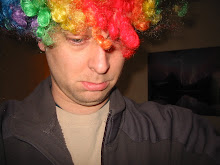Role playing games are a great place for people to explore their emotions and thoughts around the subject of right and wrong. There’s the safety of being able to rob, kill, or perhaps worse, without negative real-life legal, physical, or other consequences. Or conversely, of being able to stop a bully, and to discover dignity or integrity. Either way, the feedback from other players and from the referee creates a kind of microcosm of society, with the real world’s ethics usually entering and informing the game’s imaginary stage.
The situation is a bit different with children though, as their understanding of the real world’s ideas of right and wrong are not as based on personal experience as an adult’s, nor have the norms of their culture necessarily been fully accepted or even understood. It makes perfect sense that children would use the tools available to them through role playing games to question and test these norms.
Most readers (being players) know these things intuitively, and how rpgs encourage critical thinking. All of which I mention because I’ve been slowly realizing how the area of the game that most interests and entertains me these days is precisely in moments of moral ambiguity. Whether I use a complicated device or magic item, an encounter with kobolds, or an eccentric NPC, I’ve found myself (often unconsciously at first) creating situations that highlight the uncertainty of the moral ground the PCs are standing on.
I’m not sure if that makes my game weirder than someone else’s or if I’m just more focused on and fascinated by this type of thing. I’ve been out of the hobby for two decades before taking an interest in it again a couple of years back. Maybe it’s this long absence that’s making me aware of the difference between the games of my youth and my games today - or maybe there isn’t all that much difference. There are the same goblins, kobolds, and wolves - what’s new is a greater awareness of the degrees of moral ambiguity and complexity, and subtler ways of introducing situations that force the players to examine these things. I think that whether I was running Traveller, some kind of Cthulu game, or Boot Hill for that matter, this is where my primary interest would lie.
(update: I should add "...while making sure we're having fun, of course.").
[Music]
41 minutes ago







6 comments:
In last night's session of my current campaign, the party's Paladin went to a location and heard what he thought were screams of pain coming from the back of the shop. There was a clearly locked gate preventing access to the recesses of the shop, so it would clearly be breaking and entering if he went through.
As he tested the lock to see if it was sturdy, I reminded him that going in would be against the law. His character's particular interpretation of "Lawful" definitely gave him reason to pause, and the look on his face was priceless.
A few weeks ago, my players nuked a large bunch of Troglodytes with swords and a well-placed fireball. The sole survivor was their chieftain, who managed to live with a single hit point. When the party entered the room they'd just toasted, he simply sat down and did not move or defend himself. The party was naturally curious and questioned him -- he simply told them all his people were dead and he was probably dying, so he saw no point in fighting any more. They simply pillaged aorund him and let him be. After, some of the players said they felt really guilty for how things played out. The whole thing wasn't intended as some sort of moral lesson, but you never know how things will turn out in a megadungeon!
We've had a few episodes like what Welleran describes in our Stonehell dealings. At some point after three straight sessions slaughtering lizardmen and ultimately driving the fleeing survivors, (women, children, elderly) into an underground river, a player says "Wow, we just committed genocide." Partly it's because we're all grad students that have to engage with race, class, gender, all the time, and it's hard not look at it like that sometimes.
And also, I'm an archaeologist, so most of what we do on an adventure, i.e., looting ruins and selling other peoples' heritage for cash can seem appalling at times. But whatever, it's a fantasy game. I'm doing what I can't and won't do in real life. Though if I could cast Speak with Dead, my dissertation would be writing itself.
Those are good thoughts. It is making me stop and think about how much our RPG encounters from my younger days affect my way of thinking now out here in meatspace.
Thanks for the comments -
I love when moral dilemmas seem to spontaneously arise in the game - I've been trying to build them in bit more (with a dose of humor when I can). A little more specifically and among other things: questioning the capitalist state of affairs or class injustice, racism, and generally drawing attention to things in common between "the monsters" and our PCs, rather than their differences.
I thoroughly enjoy all parts of the game - regular dice rolling and combat, the role playing itself, plots, traps, you name it - but I find myself coming back to the larger ethical questions after the sessions are over, maybe simply because there's seldom complete closure like there is with a die roll for example.
moral dilemma ??
my characters are simple; - )
encounter, kill, loot
in real life . . .
I have sex, money , rock n roll & altered mental states* ; however,
violence will destroy my career (imprisonment?) or result in damage (damrn body is aging ; - )therefore, combat is best left for RPGs
* I prefer king crab legs n champagne ,
but beer n chocolate is pretty darn good
Post a Comment